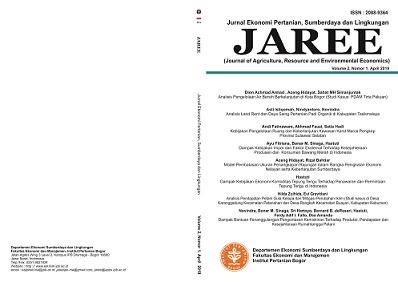DAMPAK KEBIJAKAN IMPOR DAN FAKTOR EKSTERNAL TERHADAP KESEJAHTERAAN PRODUSEN DAN KONSUMEN BAWANG MERAH DI INDONESIA
Abstract
Shallot is the main priority commodity in the development of lowland vegetable in Indonesia. Demand for shallot increases every year but domestic shallot production is unable to meet the demand. Therefore, import of shallot is needed to cover the gap. On the other hand, the import policy also has changed by government in accordance with the policy objectives. The research objectives are (1) to identify the factors that influence the production, demand, import, and price of shallot; (2) to analyze the impact of import tariff, import quota, and the external factor on supply, demand, and price of shallot; and (3) to analyze the impact of import tariff, import quota, and the external factor on shallot producers and consumers welfare in Indonesia. In order to address these objectives, a simultaneous equations model of Indonesian shallot trade was estimated by Two Stage Least Squares (2SLS) method. The shallot production is influenced by the real producer price of shallot, harvested area, and credit interest rates. This research indicates that the increase of shallot import tariff will increase the shallot prices, producers welfare, government revenues and net welfare, but it decrease supply, demand, import, and consumers welfare. To anticipate the decrease of world price of shallot (12 percent) and to increase the shallot producers and net welfare in Indonesia, government of Indonesia is suggested to restrict the shallot import by imposing import tariff (more than nine percent) or decrease import quota.




